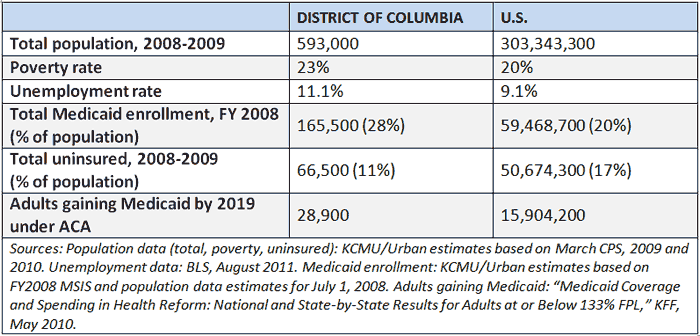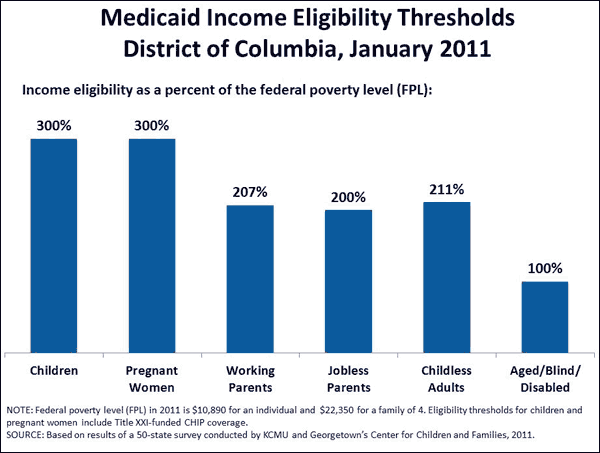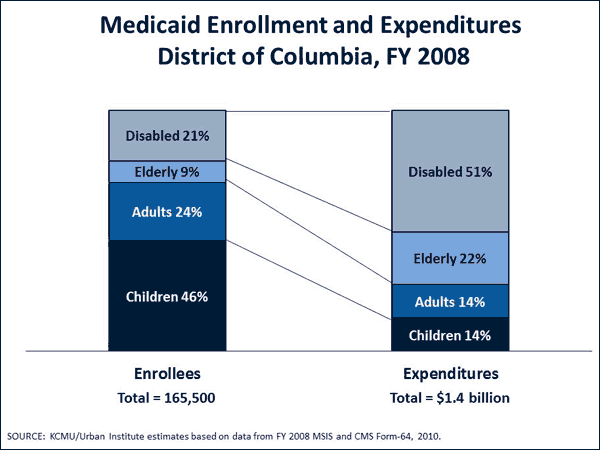
Claire Smith
Washington, D.C.
- profile
- more about medicaid
- state data
Claire Smith, now 5 years old, was born with a rare genetic syndrome whose symptoms include multiple, severe physical, developmental, and intellectual disabilities. Claire’s family has private health insurance, but because of its bureaucratic barriers, her parents have had to struggle to obtain the care Claire needs. About a year ago, Claire’s parents learned that Claire could qualify for D.C. Medicaid’s “Katie Beckett” program. This program enables families like the Smiths, whose child with disabilities would be eligible for Medicaid-funded institutional care, to have their child receive the services and supports he or she needs to remain at home. With Medicaid, Claire’s parents no longer face red-tape when Claire needs care, and because Medicaid pays providers promptly, they no longer receive threatening letters about collections. Medicaid covers the out-of-pocket costs for Claire’s care, as well as key services denied by their private policy, including Claire’s wheelchair and the tests that were needed to diagnose her illness. Medicaid also covers occasional respite care, which provides vital support to Claire’s parents and her family as a whole.
Although Claire is covered by private insurance through her father’s workplace, that coverage does not meet her exceptional needs. Medicaid supplements it in crucial ways, covering care that the policy limits or excludes, as well as copayments that mount up quickly. Claire is not alone in having Medicaid as a supplement to private insurance – an Urban Institute analysis found that over 1 million privately insured children have Medicaid as wrap-around coverage. The “Katie Beckett” option in Medicaid allows Claire’s family to care for her at home rather than in an institutional setting, without facing the prohibitive costs of the many services she needs. A report by the Government Accountability Office in 2003 indicated that 22 states had taken up the Katie Beckett option to support in-home services and supports for children with severe disabilities.
For more information on the District of Columbia’s Medicaid program and other data on health coverage, access and expenditures, please visit the District of Columbia’s page at www.statehealthfacts.org.
Just to deal with a system that is not designed to make money, but a system that appears to be designed to make sure that my daughter gets the care that she needs, is fantastic. – Claire's father, Dan










